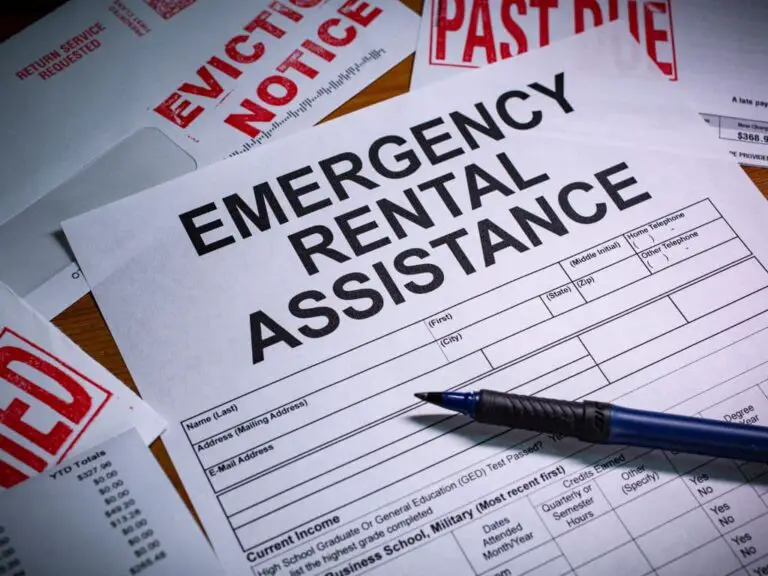What Factors Should Be Considered for Seniors to Live Independently?
Moving out and living independently is a major milestone in life. For senior citizens, the decision to live independently can be even more monumental, as it involves evaluating many factors related to health, finances, and lifestyle. Here are some of the key considerations seniors should evaluate when deciding if independent living is the right choice.

Factors to Consider for Independent Living
1. Financial Stability and Management
One of the most crucial factors is ensuring financial stability and having good money management skills. Seniors need to examine their income sources, savings, investments, and assets to determine if they can afford housing, food, medical care, transportation, and other necessities. Developing a realistic budget is essential, as is understanding government benefits like Medicare, Medicaid, and Social Security. Consulting with financial advisors can provide valuable insight.
2. Health and Wellness
Good physical, mental, and emotional health enables independent living. Seniors should honestly assess their chronic conditions, mobility, strength, stamina, and other factors that impact daily functioning. Regularly taking medications as prescribed and having access to healthcare services are key. Being able to prepare nutritious meals, exercise, and manage stress also contributes to wellness.
3. Social Connections and Support System
Loneliness and isolation present risks for seniors living alone. Proactively building social connections and a support system are vital safeguards. This can involve joining senior community groups, volunteering, scheduling visits with family and friends, and finding peers for shared activities. Developing relationships provides mental stimulation and a sense of purpose.
4. Skills for Daily Living
Mastering skills for daily living like cooking, cleaning, laundry, and home maintenance lays the groundwork for independence. Seniors may need to learn new skills or refresh existing ones, like following recipes, doing minor repairs, using technology, driving, and finding resources. Tools like checklists and daily planners can help organize and structure time.
5. Transportation and Mobility
Being able to get around via driving, public transportation, or other senior transportation services is essential. Seniors should evaluate their comfort with driving, ability to walk moderate distances, and access to alternative options. They may also need to arrange medical transportation. Preparing for diverse weather and emergency situations is also key.
6. Safety and Security
When living alone, special attention should be paid to safety risks like falls, accidents, and elder abuse. Home modifications like grab bars and railings can prevent falls. Security measures like alarm systems and emergency alert devices provide protection. Having emergency contacts and an action plan gives seniors and family members peace of mind.
7. Access to Necessary Services
Seniors must identify and have access to important services like healthcare, groceries and medications, home maintenance help, and banking. Proximity and transportation options are key factors. Services that provide check-ins, caregiving assistance, and social interaction can also offer critical support.
8. Emotional Readiness for Independence
Transitioning to independent living can be emotionally challenging. Reflecting on their confidence, problem-solving abilities, adaptability, and comfort being alone helps assess seniors’ emotional preparedness. Some may benefit from counselling. Support groups connect seniors who are going through similar experiences.
9. Time Management Skills
Living alone requires strong time management abilities. Seniors should structure their days purposefully by scheduling social activities, errands, chores, and self-care. They can use tools like calendars, reminders, and checklists to stay organized. Having hobbies and interests they enjoy also helps fill time meaningfully.
10. Problem-Solving Skills
Independent living inevitably involves addressing problems like appliance issues or home repairs. Seniors need problem-solving strategies like researching solutions online or asking others for input. Maintaining positivity and believing in their abilities enables seniors to tackle challenges. Being willing to seek help when needed is also crucial.
What Are the Benefits of Living Independently?
Despite the challenges, independent living can profoundly enrich seniors’ lives. Benefits include:
- Greater sense of freedom and autonomy
- More control over schedule and activities
- Potential cost savings from downsizing or sharing housing
- Peace and quiet for hobbies, reading, and rest
- Flexibility to customize living space and routines
- Opportunities to develop new skills and abilities
- Increased motivation to stay active and social
- Boosts to self-confidence and life satisfaction
The decision to live alone allows seniors to retain their independence for as long as possible. Smaller living quarters are often easier to manage than large family homes. The lifestyle change can be reinvigorating.
What Are the Challenges of Living Independently?
- Increased risk of isolation and loneliness
- Lack of immediate help if an emergency arises
- Difficulty maintaining home with age-related mobility challenges
- Dependence on self for meals and other needs
- Ongoing health monitoring and medication management
- Financial burden if living on fixed income
- Transportation challenges getting to medical appointments
- Safety risks like falls, elder abuse, accidents
- Anxiety about declining abilities impacting independence
Seniors and family members should thoughtfully plan how to mitigate these potential challenges before making the move. Enlisting help from care professionals may become necessary over time.
How to Prepare for Independent Living
Proper preparation is crucial for seniors to transition smoothly into independent living and set themselves up for success.
Useful preparation tips include taking care of any home repairs and thoroughly organizing belongings before moving out. It is wise to extensively research potential senior housing options and understand the financial requirements.
Seniors should also arrange for healthcare service options near their planned new residence. Developing a system for properly managing medications and other medical needs provides vital peace of mind.
Stocking up on assistive devices, like raised toilets, and emergency alert systems helps boost safety and self-sufficiency. Taking time to learn or refresh relevant daily living skills, like preparing quick microwavable meals or using Uber/Lyft is key as well.
Establishing new routines and intentionally scheduling social activities, visits with loved ones, errands, chores, and self-care helps seniors structure their days with purpose. Joining local senior community groups and regularly visiting activity centers before moving allows for establishing connections.
Seniors should have open and honest conversations with family members about expectations for the living arrangement on both sides.
Finally, developing backup plans for handling emergencies or cases where increased support is necessary provides seniors with reassuring confidence to take the next step towards independence.
What Resources Are Available for People Wanting to Live Independently?
A variety of resources exist for seniors pursuing independent living:
- Social services like Meals on Wheels provide food assistance, in-home care, and visitation programs.
- Support groups connect seniors facing similar challenges.
- Senior centers offer social activities, exercise classes, and practical advice.
- Transportation services provide affordable rides to appointments.
- Religious communities can offer outreach and volunteer help.
- Online resources like senior blogs and government sites provide housing/financial guidance.
- Geriatric care managers assist with transition details like coordinating care providers.
- Home healthcare agencies help with tasks like bathing, cooking, and chores.
- Telephone reassurance programs provide socialization and safety check-ins.
Seniors should thoroughly research options in their local community. Their medical providers may also have referrals.
What Role Does Technology Play in Independent Living?
Technology is making independent senior living safer and more connected. Useful devices include:
- Medical alert systems to call for help in emergencies
- Video chat services to stay in touch with family and friends
- Interactive displays like Alexa to control appliances, play music
- Medication management tools like automatic pill dispensers
- Remote health monitoring devices that capture vitals
- Senior-friendly phones and computers to access resources
- Exercise and brain health apps to promote activity
- Video doorbells and security cameras to increase safety
Technology enables seniors to receive caregiving and social support virtually. Leveraging appropriate solutions allows older adults to maintain autonomy.
Conclusion
The decision to live independently represents a major milestone along the aging journey. Seniors considering this option need to carefully assess their unique circumstances and abilities across factors like health, finances, social connections, skills, safety, and emotional readiness. While not without its challenges, living independently can grant older adults a renewed sense of freedom, purpose, and control. With proper planning, support, and use of available resources and technology, the golden years can be fulfilling ones.
Frequently Asked Questions
-
What factors should be considered for you to live independently?
Independent living requires that you are healthy and functional. This is because independent living depends on your personal resources, life circumstances, social environment and other personal characteristics. Economic factors can support independent living in concrete terms (Ahiqvist and al. 2015)
-
What kind of problems do senior citizens have?
The National Council on Aging reports that 92 percent of senior citizens have at most one chronic condition, while 77 percent have more than two. Two-thirds annually, chronic diseases such as heart disease, stroke and cancer are the leading causes of death from these conditions.
-
What can you do at 70 years old?
Higher energy, better health, restful sleep, etc. You can move with minimal impact by swimming, biking, walking and aerobics. Participating in any or all these activities can help you feel healthier and bring back your youthful energy.
-
What is Independent Living in health and social care?
Introduction. Individual living is the ability to make choices in your community and exercise control over them.
-
Will Medicare pay for assisted living in Florida?
Florida Medicaid Long-Term care Managed Care (LTCMC), covers the cost of nursing and assisted living facilities, homemaker/chore care and supplies, for people who are eligible.
-
Do direct payments affect PIP?
You do not receive any direct payments if you are a caregiver or a person receiving care. They will not be counted towards your benefits.
-
How much does supported living cost UK?
Costs for assisted living can differ depending on where you are located in the UK. Costs will increase if the facility is larger. The weekly costs can range between 500 and 1,500.
-
What has replaced the independent living Fund?
In December 2017, the ILF Transition Fund was established. It focuses on young people with disabilities, aged 16-25 years old, who are in a transitional phase in their lives.
-
What is Independent Living UK?
Independent living is the ability to live independently of institutions. Independent living has been a term that disabled people use to describe their freedom and control of their lives for many years. Disability Rights UK supports this view.
-
What is independent living for disabled people?
This definition of independent living means that people with disabilities can choose where they want to live and have access to many services, including personal assistance.
-
How much is monthly assisted living in Florida?
According to Genworth’s 2019 Cost of Care Survey 2019, the average monthly cost of assisted living is $3,500 in Florida for 2020. The state’s cost of assisted living varies widely. It can range from $2,836 per month to $5,375 per month.
-
What is an independent living assessment?
The person-centered assessment (or “person centred”) is the assessment your local council conducts. It involves you, your advocate or representative and aims to assess whether you require care to enhance your life quality and allow you to be independent.
-
What is the difference between sheltered housing and independent living?
For younger adults, shelter housing is available. These homes can be independent but also have additional facilities such as an ambulance warden or communal laundry facilities.
-
Why independent living is important for seniors?
Seniors feel fulfilled when they are independent. Seniors have the opportunity to achieve, contribute to their families, friends and neighbours, as well as enjoy old hobbies. Even though they may seem insignificant, the ability to reach and set goals can have a huge impact.
-
What are the signs that an elderly person should not live alone?
Insomnia, insomnia, difficulty completing daily tasks and confusion are all signs an older person cannot live on their own.







